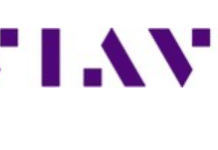
In recent years, we have seen open source being widely adapted by many organisations around the world — not only because of its cost-effectiveness, but also because of its stability, reliability, flexibility and the freedom to modify it. Every sector (the government, the private sector or the scientific institutions) uses it with great success. One sector where open source has evolved a lot in recent years is academia. These days, many academic institutes’ IT infrastructures are implemented using FOSS-based solutions.
This article aims to engage systems analysts of universities, colleges and schools, as well as student volunteers who want to implement some infrastructural services at their institutes. Here, we will cover how FOSS-based solutions can help them implement some specific facilities in their institutions that are not only cost-effective, but can be used to increase productivity and improve utilisation of the available resources.
Off-campus resource sharing
These days, a lot of institutions subscribe to online journals. These subscriptions are costly, ranging from several thousands to several lakhs of rupees per publisher, per year. These subscriptions are generally based on IP address-based authentication. These are the allocated IP addresses of the institutions.
If the campus is non-residential, most of these resources are left underutilised, as they cannot be accessed from any network except the institution’s own. During office hours, users (faculty and students) don’t have much time to go through these resources, because of daily scheduled work. Now, in order to make these resources available to users after working hours from their homes, we can deploy some open source solutions:
- Squid proxy with OpenLDAP: A Squid proxy will allow students to use the institution’s proxy from outside the campus, after being authenticated against the OpenLDAP server. Once the users are authenticated, they will be routed to the publisher’s website from the institution’s server (which is authenticated by the publisher), allowing them to browse research articles based on IP address authentication.
- OpenVPN with OpenLDAP: OpenVPN will create a secure connection to the server after the users have been authenticated against the OpenLDAP server, and after that, they can browse the journals.
Authentication services
A lot of services like integrated library management systems, research repositories, learning management systems, off-campus resource sharing and other daily-use office applications are used by academic institutions in their day-to-day operations.
It is very difficult for users to remember the credentials for all these services separately. To solve this problem, one can set up an authentication server that will be used by different services in order to authenticate users:
- OpenLDAP: This can be used as a backend server to authenticate users for all institutional infrastructure services.
- Other alternatives like Apache directory server, OpenDS and OpenDJ also exist.
- Identity providers like Shibboleth can also be used with any LDAP server as the backend.
Since the majority of FOSS projects already have built-in support for authenticating users against LDAP, this authentication service is preferred over others.
Integrated library management software
Every university these days has resource centres containing thousands of books, digital assets and old document archives. Also, as current library budgets range from several lakhs to several crore rupees, there’s a need for a solution that can help in financial audits and budget-related issues.
- Koha: Koha is a good integrated library management software (ILS) that is used across the globe. It provides facilities like tagging and RSS feeds, the union catalogue facility, customisable searches, circulation and borrower management. It also offers a full acquisitions system with budgets and pricing information (supplier and currency conversion), apart from the ability to cope with any number of branches, patrons, patron categories, item categories, items, currencies and other data. It also has the serials system for magazines or newspapers. It supports LDAP for authentication, and so can be easily plugged into organisations that are already running LDAP for authentication.
- NewGenLib: This is another ILS containing almost all the features of Koha, but with one major difference — the architecture. Koha has a two-tier architecture, whereas NewGenLib uses an n-tier architecture, with an application server in between that mediates between client machines and the database server.
Research repository
Every academic institute is known for the research papers it publishes. Every institute wants to showcase its success by this means. There are many open source software that help institutions to allow public access to these research papers:
- DSpace: DSpace is an institutional repository application. It has the largest community of users (including MIT, the IITs, etc.) and developers worldwide, is completely customisable to fit your needs, is used by educational institutes, the government, private and commercial institutions, and can be installed out-of-the-box. It can manage and preserve all types of digital content. Moreover, it has built-in support for LDAP authentication.
- Open Journal System: Its basic features include editors that can configure requirements, sections, review process, etc. It can also manage online submissions and all the content, a subscription module with delayed open access options, comprehensive indexing of content, reading tools for content based on the field and editors’ choice, etc. It also supports LDAP-based authentication with a plugin.
- Other options include FedoraCommons, Greenstone, ePrints, etc.
Learning management software
These days, e-learning is part and parcel of the education system. Every institute wants academic content to be readily available to students at their convenience. At the same time, attendance management and examinations taken online save a lot of the faculty’s time. There are already many good open source solutions available for this:
- Moodle: This is a widely used LMS across the globe, and it is supported by a big contributors’ base. It has also built-in support for LDAP authentication, and a lot of plugins are available.
- Sakai is a good alternative, but is developed in Java (compared to Moodle, developed in PHP).
Group-ware
If you need to increase productivity and collaboration among staff and students, then you need a collaboration suite that offers functionality like calendar sharing, an email client, etc.
- Group Office: One of the best solutions, this has almost every feature anyone might need for daily office collaboration. It also comes by default with an LDAP authentication module.
- Sogo: A good alternative as a group-ware server, it offers a rich AJAX-based Web interface and supports multiple native clients via standard protocols such as CalDAV, CardDAV and GroupDAV. It offers users a uniform and complete interface to access their information. It supports collaboration for users of Mozilla Thunderbird/Lightning, Microsoft Outlook, Apple iCal/iPhone and BlackBerry, through the use of a modern platform.
Content management systems
Every academic institute needs content management, to display various information related to academic programs, admission procedures, etc., in an easily manageable way. There are many open source solutions available, with similar functionality, but based on your needs, you can decide which suits you the best. All the following solutions offer authentication against LDAP:
- Drupal
- WordPress
- Liferay
- Joomla
Student management software (ERP)
Academic ERP can be used to decrease the administrative workload. It includes functionality like student registrations, fees collection, time tables, parents-teacher interactions, etc. Listed below are a few such solutions:
- Fedena: Based on Ruby On Rails, this is one of the best academic open source ERP implementations till date. It also offers features for library management, but these are limited, compared to the requirements of big academic institutions.
- OpenSIS: A PHP-based implementation of academic ERP, this is very limited compared to Fedena.
Question and answer forum sections
Every institution needs some type of Q&A platform, which can act as an FAQs page, so that admission-related and other student and staff queries can be solved, and archived for future use. QSQA is an open source solution for this. It supports LDAP authentication, and is one of the best open source Q&A solutions till date.














































































[…] Here is a article that I wrote for Linux for you, on how open source can be used for implementing infrastructure of the Academic Institutions. […]
[…] of Fedena is uniqueMore information – http://www.fedena.com/whyComparison by LinuxForU – https://www.opensourceforu.com/2012/03…CommentLoading… • Repost • 9:06amCannot add comment if you are logged out. Add […]
In today’s world open source education has been extensively adapted by a lot of organizations around the world. It is obvious in this article every establishment requires some type of Q&A platform and FAQs page, so that the entire query related to admissions and student and staff can be easily solved, and archived for upcoming use.
http://www.cloudems.in/campus-erp/